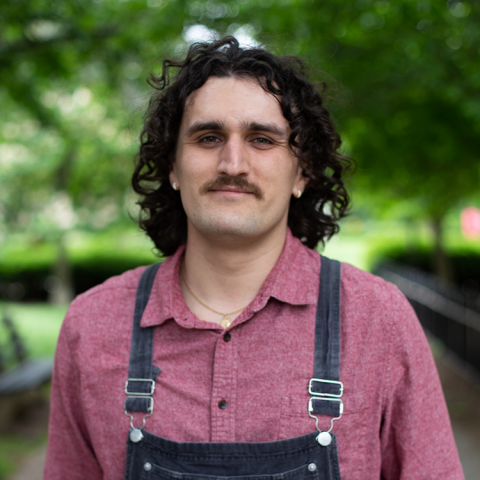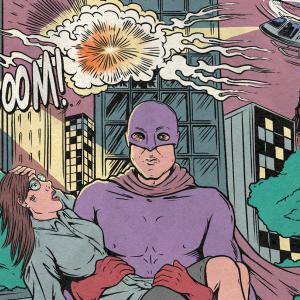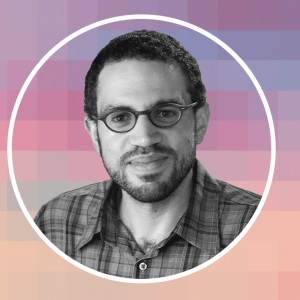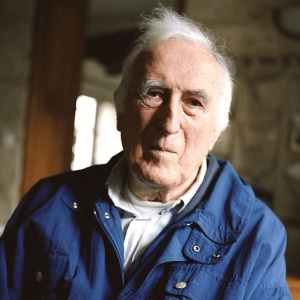
Mitchell Atencio is the senior associate news editor at Sojourners. He first served as a contract reporter for Sojourners in 2020.
Mitchell believes his role as a journalist is to ask compelling questions of the right people and to tell stories that impact the actions of readers. He loves writing stories of the radical or unique — especially within faith. Before joining Sojourners, Mitchell was a reporter in Kirkland, Wash. At Arizona State University he was a passionate and dedicated member of the award-winning, independent, student-newspaper The State Press. He also graduated with a degree in journalism and mass communications, but he doesn’t care as much about that part.
Although he didn’t stay long enough, Mitchell is proud to have been born in Atlanta and dreams of returning.
In journalism and elsewhere, Mitchell advocates for the physical medium. He is a vinyl record collector; a film photographer who shoots, develops, and scans his own film; a magazine subscriber; and a fan of writing letters on the family typewriter. In his spare time, he reads liberation theology, practices Zen, watches a lot of tennis, rants about the evils of pickleball, and makes coffee with a variety of methods. Mitchell is discalced out of religious commitment; he concedes it probably makes him a hippie.
Posts By This Author
Why Interfaith Activism Needs To Ditch ‘We’re All the Same’ Slogans
As we officially enter the season of primaries, advertising campaigns, and debates, faith communities are as central to the election process as they ever have been. Even with the nationwide decline in religiosity and trust in institutions, religious leaders and congregations are central community builders for millions of people in the U.S.
Can We Build a Trans-Affirming Evangelicalism?
There is not much that Rebecca Jane Morgan appreciates about Pat Robertson, the right-wing evangelical pastor and political figure who died in June. But one moment from his life sticks out in her mind. In 2013, Robertson was asked on-air about gender affirmation surgeries (referred to as a “sex-change” surgery). The usually hardline conservative offered a nuanced answer. “I don’t think there’s any sin associated with that,” Robertson said. “I don’t condemn somebody for [pursuing gender affirmation surgeries].”
Why Are Christians So Bad at Forgiveness?
I remember the moment I became wholly dissatisfied with Christian conceptions of forgiveness. While walking into church for a Sunday morning class on the Lord’s Prayer, I realized that I did not know how to “forgive others” as God had forgiven me. Defining forgiveness as “moving past and forgetting harm” was vague and hard to fathom. I had repeatedly seen the powerful weaponize the instruction to “forgive” against the oppressed and abused: Black people told to “forgive” the U.S. for chattel slavery; women told to “forgive” husbands who abused them; survivors of sexual violence told to “forgive” the church. Surely, this was not the forgiveness Jesus instructed. But I couldn’t escape the feeling that “forgive” was still a command for Christians to follow.
An Interview With CCCU Leadership on Racial Justice and LGBTQ+ Inclusion
Over the course of 2023, two professors at Christian colleges and universities — Julie Moore of Taylor University and Sam Joeckel of Palm Beach Atlantic University — alleged that they lost their jobs after teaching on racial justice in the classroom. (Moore settled with Taylor; Joeckel is suing PBAU, citing discrimination and retaliation.)
What Christian Peace Building Looks Like in Israel and Palestine
“We had a prayer meeting [Monday] morning with dozens and dozens of people from all different traditions, from bishops to people sitting in the pews,” Cannon told Sojourners. “We’ll have another prayer gathering on Wednesday morning. We’re grieving, we’re lamenting, and we’re also working really hard.”
Why We’re Launching The Reconstruct
In launching The Reconstruct, Sojourners’ newest newsletter, we hope to continue what we have been doing, but with more regularity: Offering thoughtful, constructive conversations with folks who are changing the world and reforming our faith.
Composing a Memorial for Musicians Exploited by the Black Church
Ashon T. Crawley, author, artist, and professor of religious studies and African American and African studies at the University of Virginia, constructed a memorial for Black church choir directors who died during the U.S. HIV/AIDS crisis. The exhibit, “HOMEGOING,” told the story of the musicians who, as he puts it, “died within a kind of epistemological moment,” where to be a musician in the Black church was to be understood as gay, to be gay was to be understood as HIV-positive, and vice versa.
A Purity Culture Musical? Shannon Harris Is Working On It
Who is Shannon Harris? This is the question that Harris herself was asking as she began to untangle her life from the fundamentalist, conservative evangelical faith she had married into.
Rich Mullins Played Evangelical Court Jester
As I looked closer, I realized these weren’t just funny stories about the songwriter of “Awesome God.” Mullins wasn’t just witty among friends. He also used his humor as a tool to share his sharp criticisms, deep contemplations, and controversial ideas with largely evangelical audiences that were increasingly looking for Christian music to be a space that confirmed their assumptions.
Rich Mullins Was the Misfit Christian Music Needed
The witness of the writer of “Awesome God” still challenges white evangelicals.
RICH MULLINS HAD a museum of a personality. The singer-songwriter, who died in a car accident in 1997, loved to show off anything he found interesting, his friends say. From music to movies to the places he traveled, Mullins loved “for you to experience what he loved,” his friend and collaborator Mitch McVicker told Sojourners.And more than just about anything else, Mullins loved Jesus.
Mullins’ career tracked alongside the evolution of contemporary Christian music (CCM), which went from marginal in the 1970s to a powerhouse genre that sold a combined 31 million albums in 1996. Best known for the modern hymn “Awesome God,” Mullins wrote his fair share of songs that fit Christian radio. But more often, his music was a kaleidoscope of faith and humanity, offering a tour of human frustration and failure.
On “Hard to Get,” Mullins, as modern psalmist, asks God, “Do you remember when you lived down here, where we all scrape to find the faith to ask for daily bread? / Did you forget about us, after you had flown away?”
In other places, Mullins plays minor prophet. “I wrote this for the Religious Right,” he declared before singing that Jesus “came without an axe to grind [and] did not toe the party line,” during a performance of “You Did Not Have a Home.”
Creative Ways Your Church Can Save Energy and Reduce Emissions
Around 2017, Hamline Church United Methodist, in St. Paul, Minn. contracted an energy audit for its nearly 100-year-old building in the hopes of learning how their building might save energy and reduce emissions. Diane Krueger, a lay leader of the church’s “EarthKeepers” team, said contractors recommended the church insulate their heating pipes and change many of their lightbulbs to LEDs.
Who Is the ‘Welfare State’ Actually Benefiting?
Author and sociologist Matthew Desmond on how we can build out permanent solutions to poverty.
MATTHEW DESMOND, a Princeton sociologist and author, has grown tired of calls to reduce poverty — because he knows we can abolish it. In his new book, Poverty, by America, Desmond explores not the lives and struggles of people who are poor — but poverty, and the conditions that cause it. And Desmond contends that the lives the rest of us live are often connected to the conditions that cause poverty.
“To understand the causes of poverty, we must look beyond the poor. Those of us living lives of privilege and plenty must examine ourselves,” Desmond writes. “Are we — we the secure, the insured, the housed, the college educated, the protected, the lucky — connected to all this needless suffering?”
Desmond is the son of a pastor, and his work is rich with spiritual metaphor and flare while grounded in the material realities of poverty and the conditions that cause it. He dedicates a chapter of his book to refuting the idea that “neoliberal” cuts in welfare spending are to blame for poverty. “There is no evidence that the United States has become stingier over time. The opposite is true,” he writes. Instead, the problem is “a fair amount of government aid earmarked for the poor never reaches them.” Sojo.net associate news editor Mitchell Atencio spoke with Desmond about his new book, community building, and capitalism. —The Editors
Sojourners: Theologian Gustavo Gutiérrez defines poverty as “premature and unjust death,” saying that “the poor person is someone who is treated as a non-person, someone who is considered insignificant from an economic, political, and cultural point of view.” Is that a good way to describe poverty?
Matthew Desmond: I think that’s a factual way to describe what poverty is. Between 2001 and 2014, the richest women in America gained three years of life and the poorest women gained 15 days. So, poverty is death. There was a study that came out very recently that showed that one of the leading causes of death in the United States is poverty. I think that when we deny people access to basic needs, and we deny them basic economic security in this rich land, we do deny them life and happiness itself.
The other part of the quote about insignificance is very interesting because it does seem that in our popular culture — our TV shows, our movies, our children’s books — there are often no portrayals of real poverty in those media, and so it’s kind of amazing how seamlessly the poor can be erased from everything we’re reading and watching and reading to our kids.
Are Our Superheroes Just Glorified Police?
We need our superheroes to save those trapped by the injustice of incarceration.
EVER SINCE I was little, my imagination has been shaped by superhero worlds, lore, and comic and animated adaptations. And while more “realistic” adaptations are the trend on the big screen, what enthralled me about characters such as Batman wasn’t that I thought he could be real; I was tuned instead to the ethos behind the caped crusader.
Superhero stories often seem limitless. At their best, they stretch the imagination to ask what type of world we want to exist and what it would take to get us there, while acknowledging hardships along the way.
Recently, I began a rewatch of the DC Animated Universe: TV shows, feature films, and shorts that aired mainly from 1992 to 2006. These shows were the first to capture my attention and shape my imagination. Batman: The Animated Series was my first love, with Kevin Conroy’s Batman and Mark Hamill’s Joker seared into my consciousness. As I watched, I made a particular note about the moral imagination of these shows: Superheroes in these shows don’t just refuse to kill — a theme recurring across superhero worlds — they refuse to even let anyone die.
Take Season 1, Episode 11 (S1 E11) of Superman: The Animated Series: Lex Luthor’s weapons factory is about to explode, with spilled molten metal splashing about. Lana Lang is hanging by a thread above certain death; so is Lex Luthor, who unintentionally caused this mess in his attempt to kill Superman. But then, at the last moment, Superman bursts forth from under the molten waves, crashing out of the top of the factory just before it explodes, with Lana in one arm and the villain in the other.
It’s a scene that strains credulity. There’s an improbability of timing, a lack of “logic” in doubling back for the person trying to kill you, and the storyteller’s refusal to explain how Superman managed to save the villain. But what’s key here is the insistence, and flaunting, that Superman would save the villain. It doesn’t need an explanation; it’s assumed.
For a while, I was paying attention to how the writers made this subtext believable. Superman saves some villains in hopes they can be rehabilitated, others because they are being used by larger, more villainous characters. Why? The simple answer is that these were shows for families and children. The same reason the comic book’s “League of Assassins” became the TV show’s “Society of Shadows” and villains set out to “destroy” rather than “kill” heroes.
But this death-resisting subtext becomes dialogue in S2 E9 of Superman: The Animated Series when some kids plead with Metallo, a villain disguised as a hero, to save Lois Lane from an exploding volcano. “Superman wouldn’t let anyone die, no matter how bad they were,” the kids protest. “I’m not Superman,” Metallo retorts.
Justin Jones Still Calls Upon the ‘Soulful Energy’ of the South

Representative Justin Jones marches with supporters to the Tennessee State Capitol the after being reinstated by the Metropolitan Council of Nashville and Davidson County with 36-0 votes, after the Republican majority Tennessee House of Representatives voted to expel two Democratic members, representatives Justin Pearson and Justin Jones, for their roles in a gun control demonstration on the statehouse floor, in Nashville, Tenn., April 10, 2023. REUTERS/Cheney Orr
Despite Republican colleagues expelling him from the Tennessee state legislature, Nashville’s Democratic Rep. Justin Jones still believes working for justice in the South means working on “sacred ground.”
Catholic Nuns: Church Isn’t Whole Without Trans Siblings
Nearly 30 groups of Catholic nuns, totaling more than 6,000 people across 18 states, signed onto a statement celebrating Trans Day of Visibility and calling people to resist anti-transgender legislation in their states.
Vincent Lloyd on Salvation From ‘Anti-racist Hell’
Lloyd, a theologian and director of Africana studies at Villanova University (and Sojourners contributor), writes about his experiences teaching a seminar on “Race and the Limits of Law in America” through the Telluride Association. In the blistering essay, Lloyd writes that he experienced a “mutiny” — expelled from his role by his high school students led by a “charismatic” college-aged student who created a “cult” of anti-racism and eventually accused him of harm, micro-aggressions, and perpetuating “anti-black violence” through the seminar.
Shane Claiborne Believes Legalizing Abortion Can Be ‘Pro-Life’
When I opened Shane Claiborne’s new book, I rolled my eyes and sighed. Claiborne’s book, Rethinking Life: Embracing the Sacredness of Every Person, was dedicated to “all the women of faith over the centuries, the midwives of a better world, and to the two most significant women in my life—my mom, Patricia, and my wife, Katie Jo.”
6 Key Details in the New Report on Jean Vanier’s Abuse
More than just an accounting of Vanier and Philippe’s abuse, the report offers a clear timeline and analysis of the secret intentions and motivations named by the two men and their accomplices. It also offers a look at the many figures who attempted to hold Vanier and Philippe accountable, or rein in their abuse.
Jean Vanier Began L’Arche To Cover Abusive ‘Mystical-Sexual’ Practices, Finds Report
A report released today concluded that Jean Vanier — a Catholic lay leader and founder of L’Arche, a worldwide network of communities supporting adults with intellectual disabilities — founded the first L’Arche community primarily as a cover for a secretive religious sect with exploitative “mystical-sexual” beliefs and practices. The report also found Vanier sexually exploited at least 25 nondisabled women from 1952 until just before his death in 2019, far more than previously known.
The NFL Exists Because We Keep Watching. So I Stopped.
I am a Christian convicted that to love my neighbors, I must resist the violence of the NFL.
EARLY IN THE 2022 NFL season, I watched as the Miami Dolphins quarterback Tua Tagovailoa suffered a second head injury in the span of five days. Although the NFL would not admit the first of those was a concussion, it was painfully clear that Tagovailoa suffered serious brain trauma.
In that moment, I felt the culmination of years’ worth of fretting over the sport I loved and its relationship to head injuries. I determined then and there on a Thursday night that I would quit the NFL. Why? The NFL is violent — and Christians are called to peace.
The league is unrepentant and unaccountable in its abuse of the brains and bodies of its players, and no amount of reform can change that. I am convicted that if I am to love my neighbors — if I am to love God — then I must resist the NFL.


















